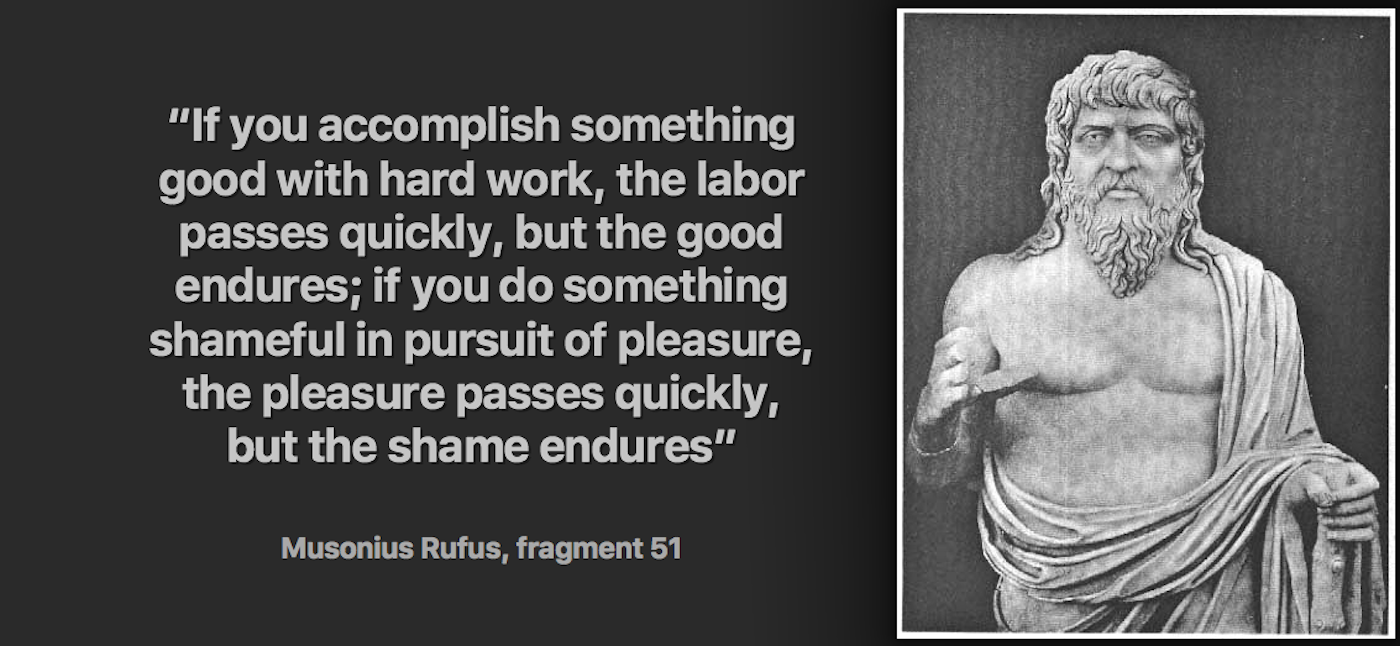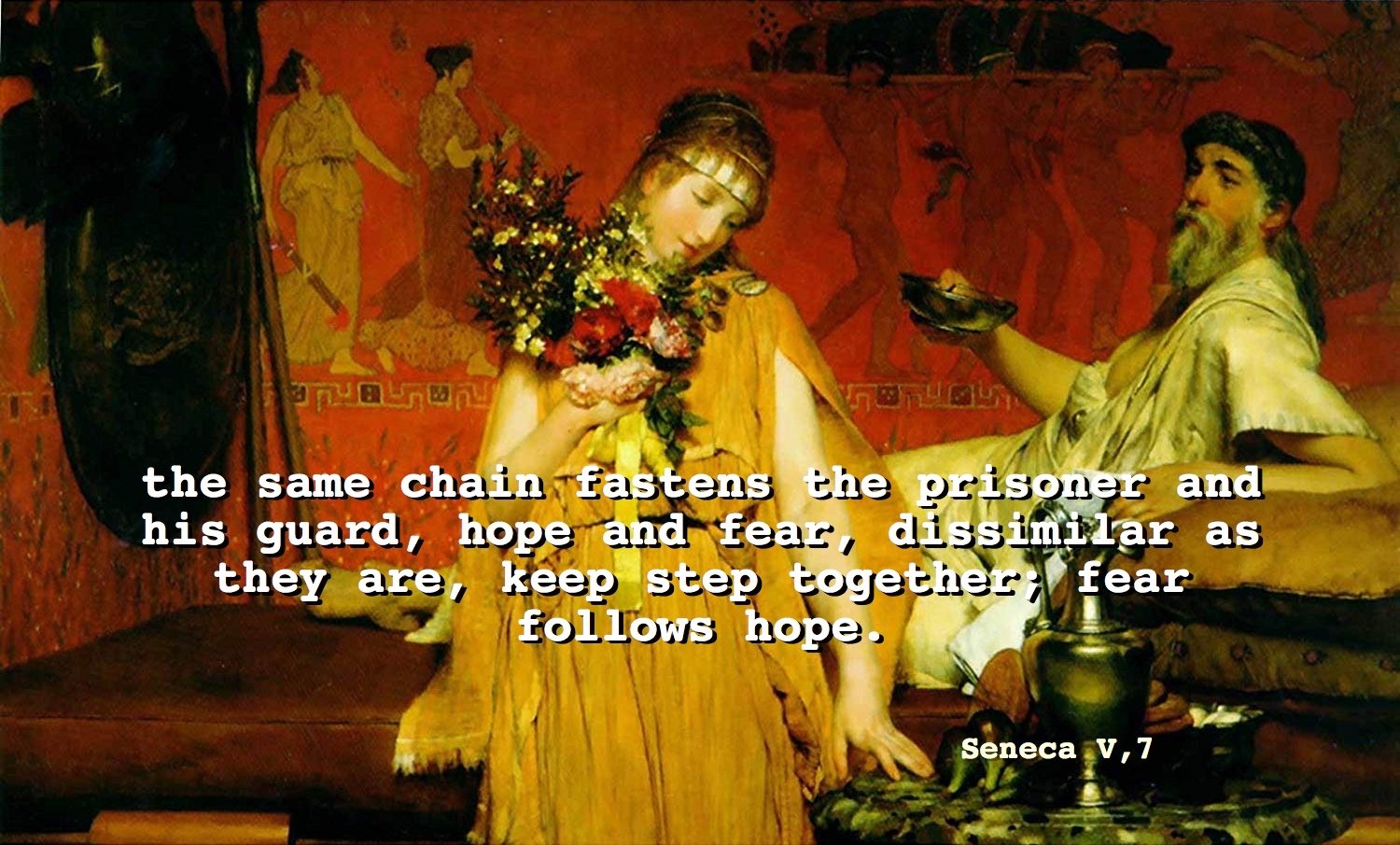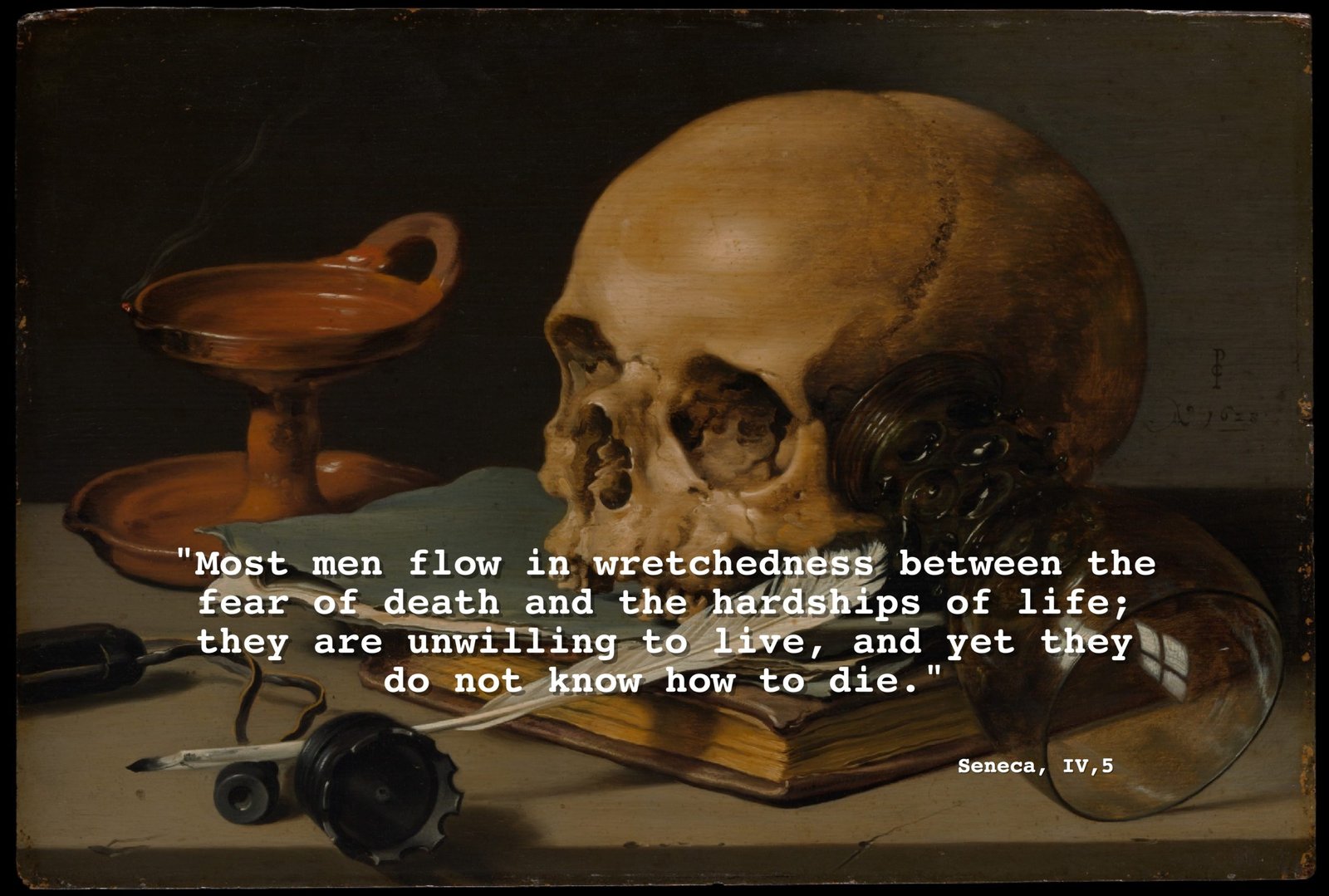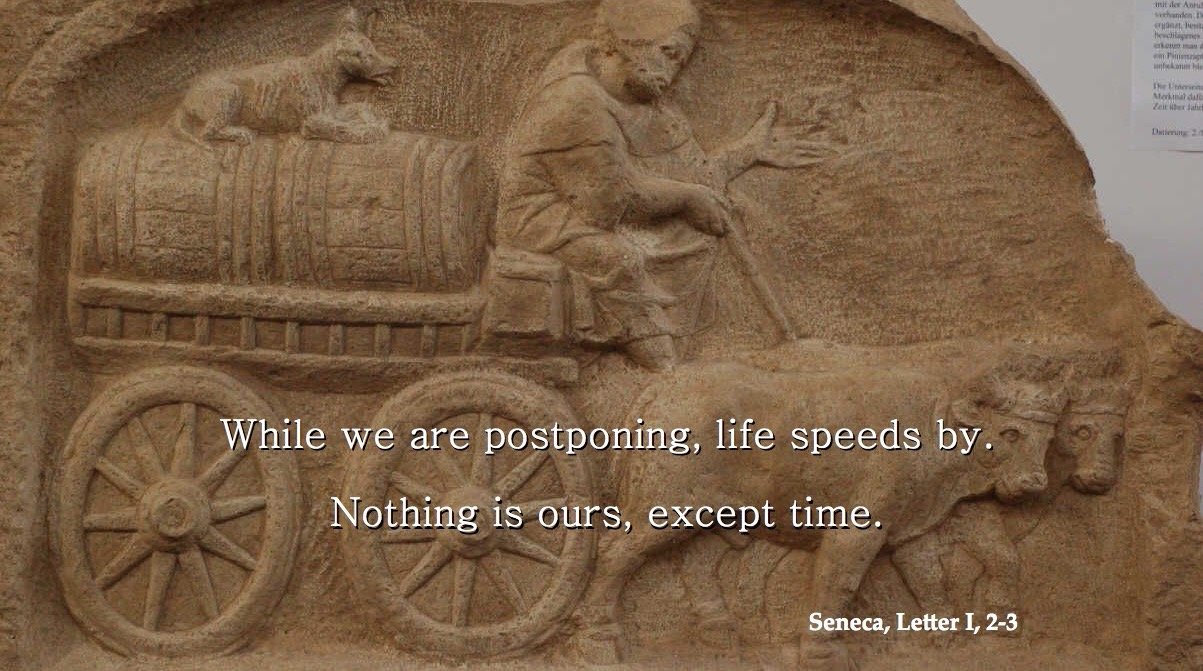In the sixth letter, Seneca discusses friendship and knowledge sharing. The first memorable sentence is:
No good thing is pleasant to possess, without friends to share it. (VI, 4)
He asks that Lucilius continue studying, not only through books, but mainly through examples, and especially to share with others what he has learned. Then claims that the company of Socrates did Plato and Aristotle more good than his philosophy. The same with Metrodorus, Hermarchus, and Polyaenus in regard of Epicurus‘ presence.
Plato, Aristotle, and the whole throng of sages who were destined to go each his different way, derived more benefit from the character than from the words of Socrates. It was not the class-room of Epicurus, but living together under the same roof, that made great men of Metrodorus, Hermarchus, and Polyaenus. Therefore I summon you, not merely that you may derive benefit, but that you may confer benefit; for we can assist each other greatly. (VI, 6)
Points:
- Learn and Share knowledge.
- Not merely derive benefit, but confer benefit; for we can assist each other greatly.
VI. On Sharing Knowledge
1. I feel, my dear Lucilius, that I am being not only reformed, but transformed. I do not yet, however, assure myself, or indulge the hope, that there are no elements left in me which need to be changed. Of course there are many that should be made more compact, or made thinner, or be brought into greater prominence. And indeed this very fact is proof that my spirit is altered into something better, – that it can see its own faults, of which it was previously ignorant. In certain cases sick men are congratulated because they themselves have perceived that they are sick.
2. I therefore wish to impart to you this sudden change in myself; I should then begin to place a surer trust in our friendship, – the true friendship which hope and fear and self-interest cannot sever, the friendship in which and for the sake of which men meet death.
3. I can show you many who have lacked, not a friend, but a friendship; this, however, cannot possibly happen when souls are drawn together by identical inclinations into an alliance of honourable desires. And why can it not happen? Because in such cases men know that they have all things in common, especially their troubles. You cannot conceive what distinct progress I notice that each day brings to me.
4. And when you say: “Give me also a share in these gifts which you have found so helpful,” I reply that I am anxious to heap all these privileges upon you, and that I am glad to learn in order that I may teach. Nothing will ever please me, no matter how excellent or beneficial, if I must retain the knowledge of it to myself. And if wisdom were given me under the express condition that it must be kept hidden and not uttered, I should refuse it. No good thing is pleasant to possess, without friends to share it.
5. I shall therefore send to you the actual books; and in order that you may not waste time in searching here and there for profitable topics, I shall mark certain passages, so that you can turn at once to those which I approve and admire. Of course, however, the living voice and the intimacy of a common life will help you more than the written word. You must go to the scene of action, first, because men put more faith in their eyes than in their ears,[1] and second, because the way is long if one follows precepts, but short and helpful, if one follows patterns.
6. Cleanthes could not have been the express image of Zeno, if he had merely heard his lectures; he shared in his life, saw into his hidden purposes, and watched him to see whether he lived according to his own rules. Plato, Aristotle, and the whole throng of sages who were destined to go each his different way, derived more benefit from the character than from the words of Socrates. It was not the class-room of Epicurus, but living together under the same roof, that made great men of Metrodorus, Hermarchus, and Polyaenus. Therefore I summon you, not merely that you may derive benefit, but that you may confer benefit; for we can assist each other greatly.
7. Meanwhile, I owe you my little daily contribution; you shall be told what pleased me to-day in the writings of Hecato;[2] it is these words: “What progress, you ask, have I made? I have begun to be a friend to myself.” That was indeed a great benefit; such a person can never be alone. You may be sure that such a man is a friend to all mankind.
Farewell.
Footnotes
- ↑ Cf. Herodotus, i. 8 ὦτα τυγχάνει ἀνθρώποισι ἐόντα ἀπιστότερα ὀφθαλμῶν.
- ↑ Frag. 26 Fowler.
- image: The School of Athens, Raphael






